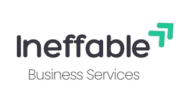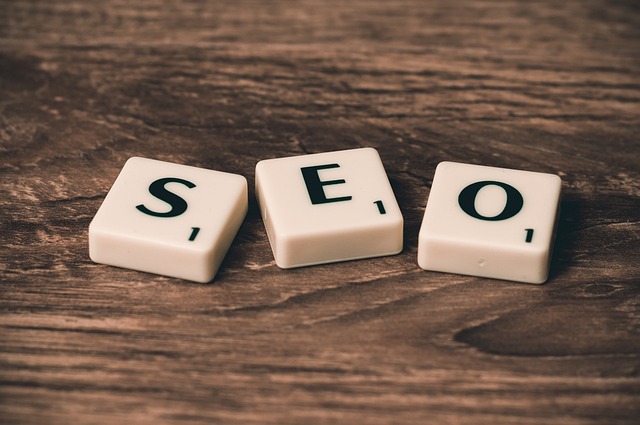“How to Build a Strong Personal Brand Online in 2025 (Step-by-Step Guide)”
Word count: Within 3000 | Tone: Easy, Human-like English | SEO-Friendly
🌟 Introduction: Why Personal Branding Matters in 2025
In today’s digital world, your personal brand is your online identity.
Whether you’re a freelancer, content creator, business owner, or student — people will Google your name. What shows up matters.
A strong personal brand can:
- Attract job offers
- Bring you clients or partnerships
- Help you grow a loyal audience
- Build trust before people even meet you
In 2025, building your brand online is not just an option — it’s a must.
Let’s break down how you can build a powerful personal brand step-by-step, with practical examples and tools you can start using today.
🔑 Step 1: Define Who You Are and What You Stand For
Before you post anything online, ask yourself:
- What am I passionate about?
- What do I want to be known for?
- Who is my ideal audience?
- What problem do I help solve?
This is the foundation of your personal brand.
🎯 Example:
If you’re a digital marketer who loves helping small businesses grow through SEO, your brand message could be:
“Helping local businesses rank higher and grow bigger with smart SEO strategies.”
Once you’re clear on your mission, stay consistent with it everywhere.
🧑💻 Step 2: Clean Up and Optimize Your Online Presence
Google your name. What shows up? That’s what others will see first.
✅ Action Steps:
- Update your LinkedIn: Add a professional photo, headline, and summary
- Set up a personal website or portfolio (use platforms like Wix, Carrd, or WordPress)
- Delete old social posts that don’t align with your current brand
- Use the same profile photo and bio across platforms for consistency
💡 Tip: Buy a domain name (like YourName.com) to make your brand look serious and professional.
📱 Step 3: Choose Your Platforms Wisely
You don’t need to be everywhere. Focus on 2–3 platforms where your audience hangs out.
🔍 Platform Guide:
| Platform | Best for |
|---|---|
| Professionals, job seekers, B2B | |
| Creators, lifestyle, personal stories | |
| Twitter/X | Thought leadership, tech, news |
| YouTube | Tutorials, long-form video, reviews |
| TikTok | Short-form fun, behind-the-scenes |
| Medium/Substack | Writers, bloggers, educators |
💡 Pick platforms that match your content style and target audience.
🧠 Step 4: Share Valuable Content Consistently
The key to personal branding? Consistency + Value.
Don’t just post for the sake of it — post to:
- Educate
- Inspire
- Entertain
- Share your journey
📝 Content Ideas:
- Lessons you’ve learned
- Behind-the-scenes of your projects
- Tutorials or “how-to” guides
- Mistakes you made (and what you learned)
- Book/podcast/tool recommendations
💡 Tip: Use a simple content calendar to plan and stay consistent.
📷 Step 5: Use High-Quality Visuals and Branding
Visuals help people remember and recognize your brand faster.
Branding Must-Haves:
- Logo or name graphic (Canva works great!)
- Brand colors and fonts
- High-quality profile and cover photos
- Consistent post templates
🧰 Tools to Use:
- Canva (for templates and branding)
- Remove.bg (for profile pic backgrounds)
- Pexels/Unsplash (for free images)
🧩 Step 6: Engage and Build Relationships
Personal branding is not just about posting — it’s about connecting.
How to Engage:
- Reply to comments and DMs
- Comment on others’ posts thoughtfully
- Collaborate with creators in your niche
- Join Twitter Spaces, LinkedIn groups, Discords, or Subreddits
💬 Tip: Relationships lead to opportunities — job offers, guest posts, podcast invites, and more.
📈 Step 7: Show Proof and Results
People trust brands that show real impact.
Ways to Do This:
- Share before/after results
- Post testimonials or client feedback
- Show analytics growth
- Share screenshots (with permission)
📌 Remember: You don’t need to brag — just tell stories with proof.
🧰 Step 8: Use the Right Tools to Grow Faster
Here are some powerful free and paid tools that can help:
💼 Branding & Design:
- Canva (free/paid)
- Looka (for logos)
📅 Scheduling:
- Buffer, Later, or Metricool
✍️ Writing:
- Grammarly, Hemingway
- ChatGPT for ideas, captions, blog outlines
📊 Analytics:
- LinkedIn Analytics
- Instagram Insights
- Google Analytics (for websites)
🔄 Step 9: Evolve and Rebrand (If Needed)
Personal brands grow with time. As you learn, achieve, and shift — update your brand accordingly.
✅ Every 6 months, review:
- Your bio
- Your niche
- Your content strategy
- What’s working vs. what’s not
Don’t be afraid to pivot your personal brand. Just stay authentic and keep your audience informed.
💡 Bonus: Monetize Your Personal Brand
Once you’ve built trust and an audience, there are many ways to earn:
💰 Monetization Ideas:
- Sell digital products (eBooks, templates)
- Offer coaching or consulting
- Launch paid newsletters or courses
- Do brand deals or UGC
- Get freelance gigs through inbound leads
Even without millions of followers, a trusted personal brand = income.
🙋 FAQs About Personal Branding in 2025
Q: Do I need a lot of followers to build a personal brand?
No. Even with 500 engaged followers, you can build trust and authority.
Q: Can students build a personal brand?
Absolutely. Start sharing your journey, what you’re learning, and projects you’re proud of.
Q: How long does it take to build a personal brand?
It’s a long-term game. Expect 6–12 months to see results if you’re consistent.
Q: Should I hire someone to manage my personal brand?
You can start alone. As you grow, you can hire a designer, content assistant, or branding coach.
🧭 Final Thoughts: Start Today, Not Someday
Personal branding is not about being famous — it’s about being known, trusted, and remembered in your space.
You already have something valuable to share.
Your story, your lessons, your unique voice — that’s your brand.
So whether you’re just starting or rebranding yourself, remember:
“You are your biggest asset. Build your brand before someone Googles you.”

